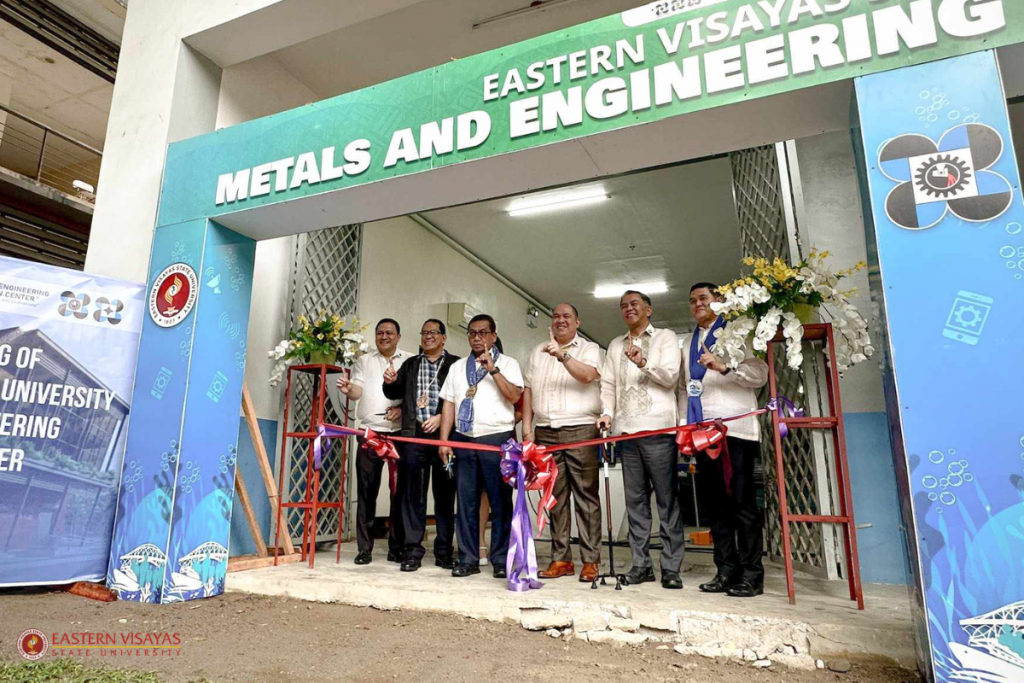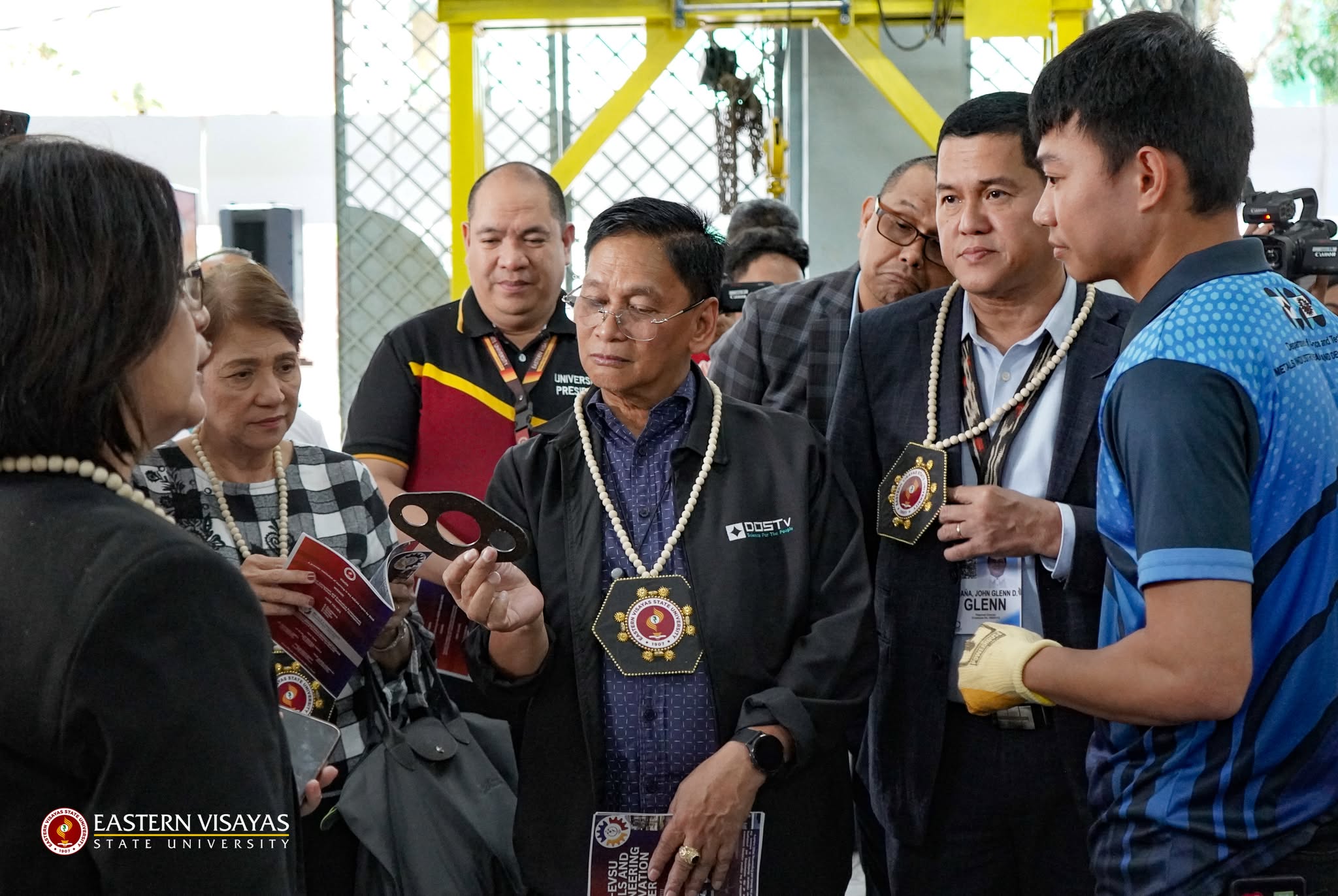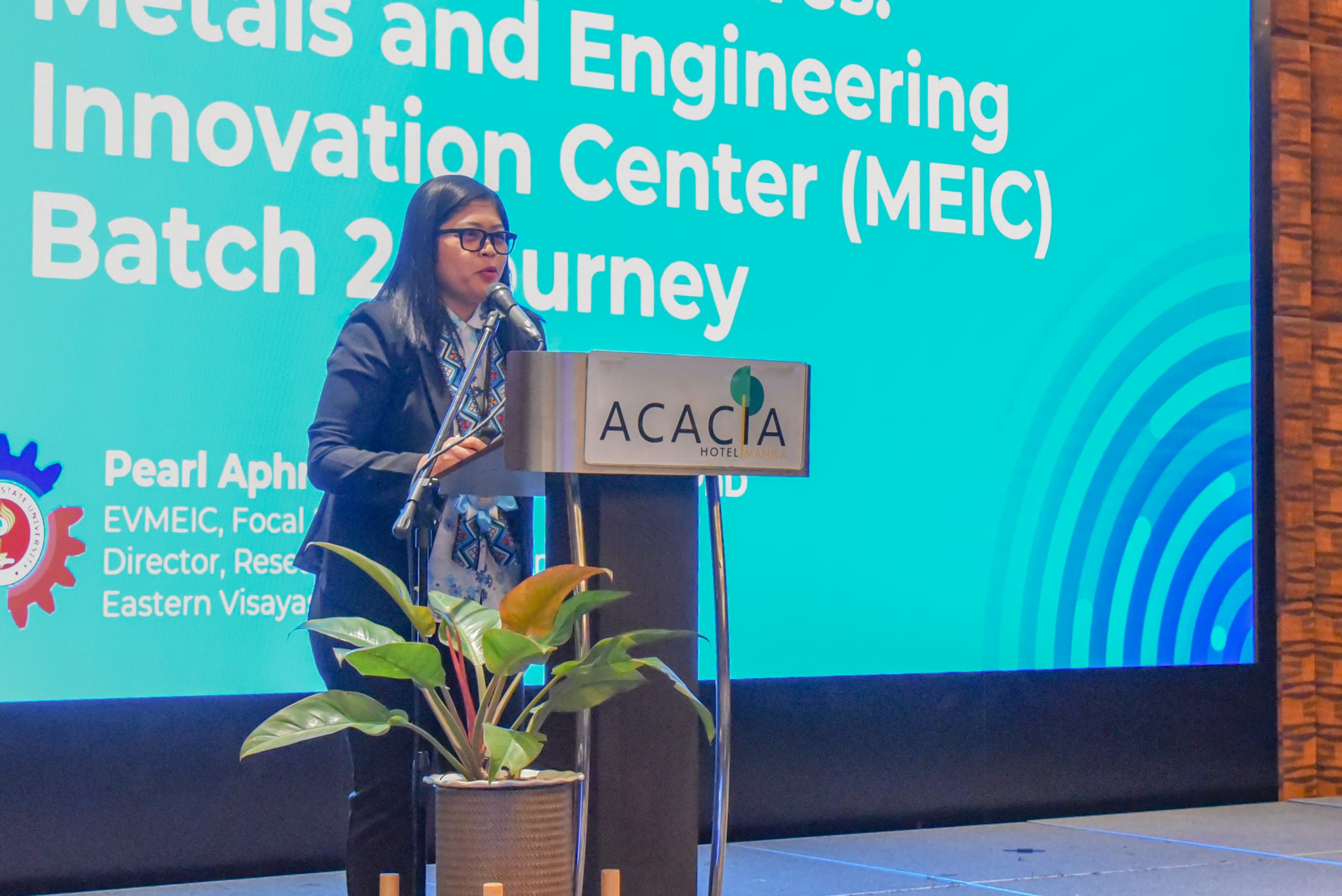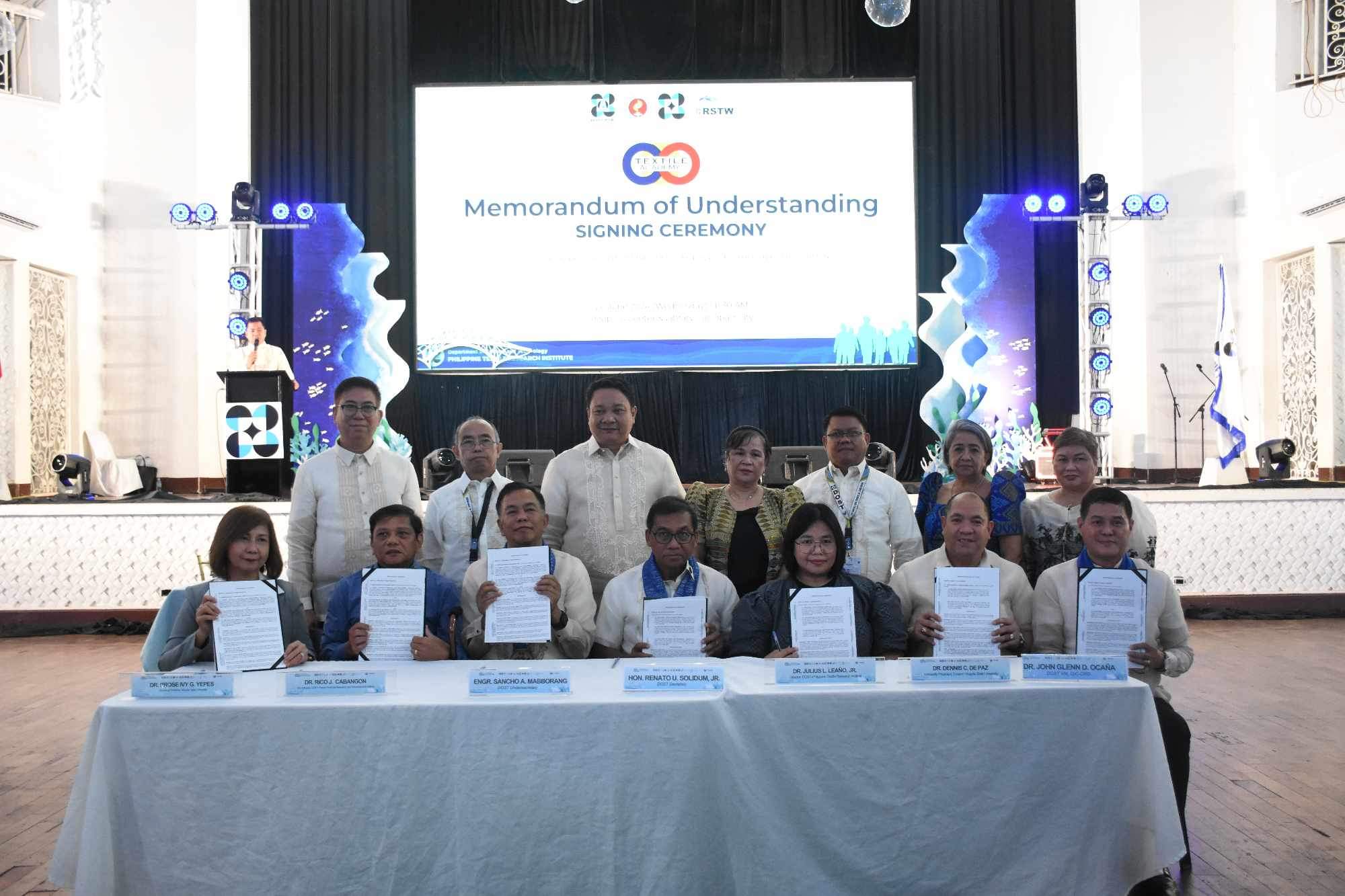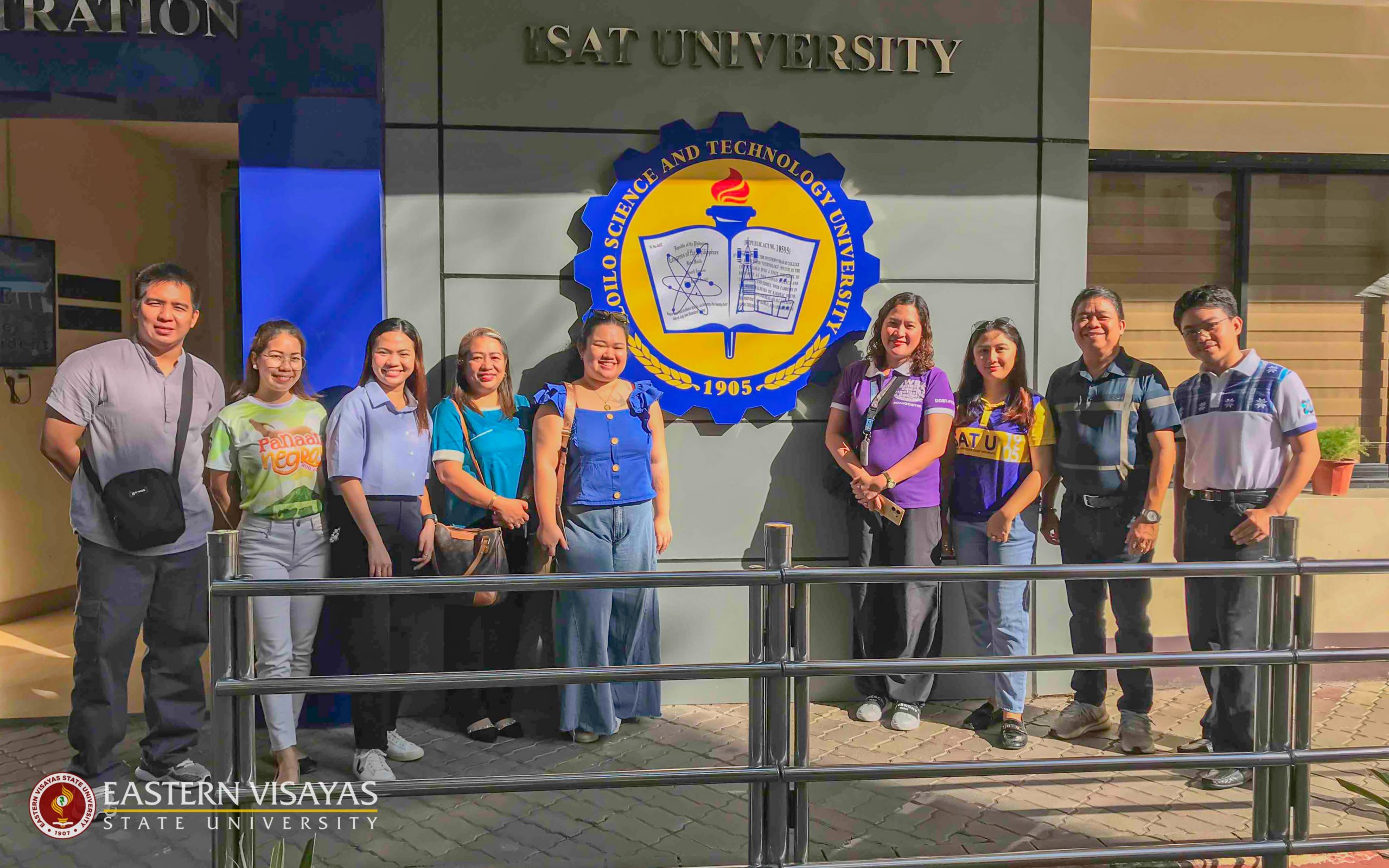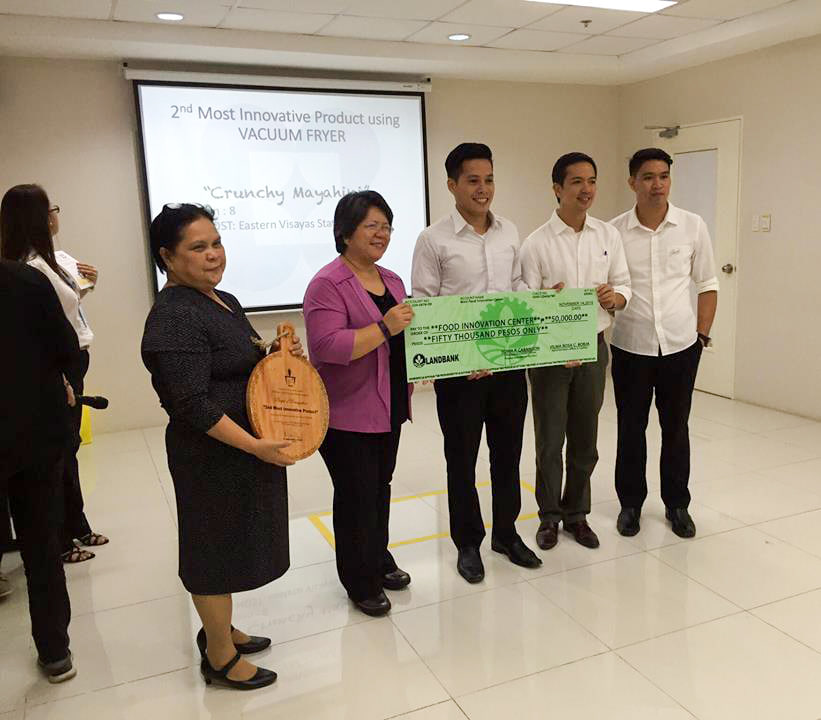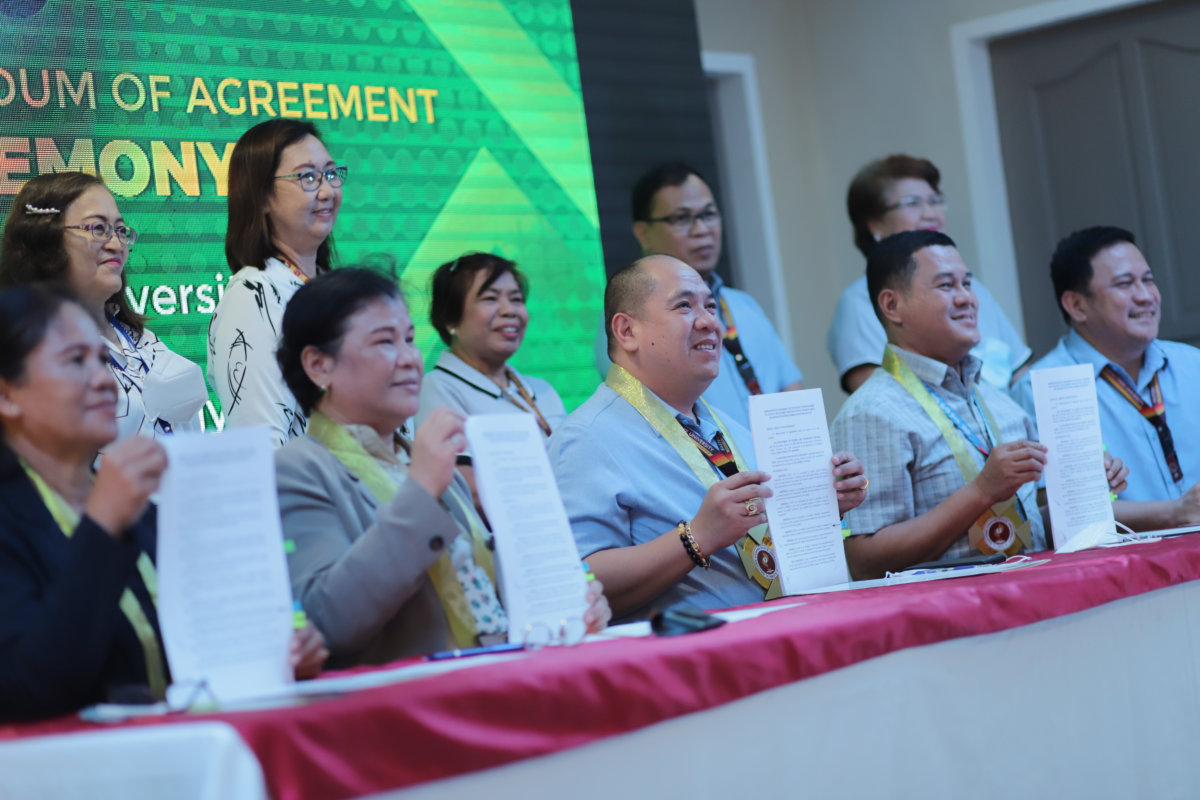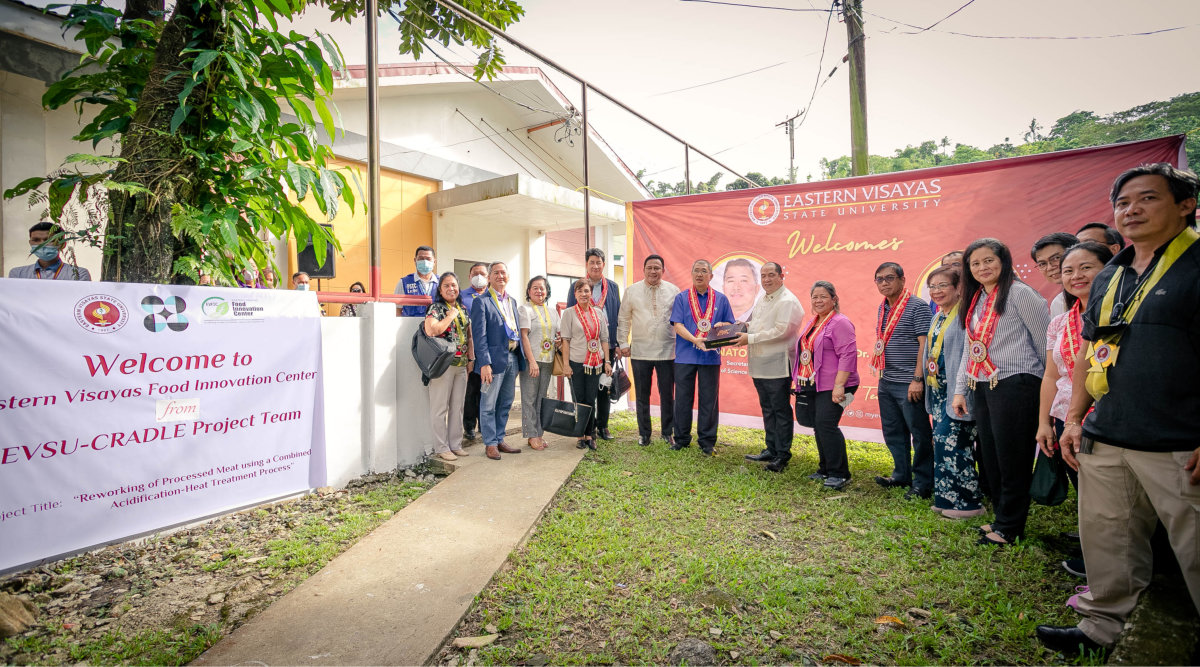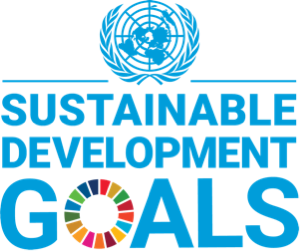Policy Statement
Pursuant to the Philippine Innovation Act (R.A. 11293), the Build, Build, Build and subsequent infrastructure development programs, and aligned with the UN 2030 Agenda for Sustainable Development, Eastern Visayas State University (EVSU) commits to advancing innovation, sustainable infrastructure, and industry partnerships that support inclusive growth and resilience in the Eastern Visayas region.
EVSU shall:
Foster innovation and research excellence by strengthening research centers, laboratories, and knowledge hubs that drive technological advancement, creative solutions, and community-responsive innovations.
Promote industry-academe-government linkages to facilitate technology transfer, collaborative projects, and knowledge-sharing networks that address regional and national development priorities.
Invest in climate-resilient, sustainable, and inclusive infrastructure across its campuses, ensuring that facilities are environmentally friendly, disaster-ready, digitally equipped, and accessible to all, including persons with disabilities (PWDs).
Develop smart and green campuses by integrating renewable energy, green architecture, efficient water and waste management, and digital connectivity in line with global standards for sustainable universities.
Support entrepreneurship and start-up ecosystems by providing incubation spaces, innovation labs, and access to mentorship and funding opportunities for students, faculty, and community partners.
Advance digital transformation by adopting emerging technologies such as artificial intelligence, data analytics, and smart systems in academic, research, and administrative processes.
Strengthen capacity-building and skills development through training programs that prepare graduates and professionals for future industries, including renewable energy, resilient construction, ICT, and climate-smart technologies.
Conduct applied research and policy studies on sustainable infrastructure, industrial innovation, and resilient urban-rural systems to contribute to evidence-based policymaking and community development.
Through these initiatives, EVSU envisions itself as a driver of innovation, sustainability, and industrial development, creating future-ready graduates, pioneering research, and resilient infrastructure that uplift the Eastern Visayas region and contribute to national progress.
EVSU as a Launchpad for Technology-Based University Spin-Offs
Eastern Visayas State University (EVSU) strengthens its innovation ecosystem through the successful development of university spin-offs emerging from its three flagship research and innovation centers: the Metals and Engineering Innovation Center (MEIC), the Natural Textile Fiber Innovation Hub (NTFIH), and the Eastern Visayas Food Innovation Center (EVFIC).
These centers serve as incubation spaces where research outputs are transformed into viable commercial ventures, enabling faculty researchers, student innovators, and industry partners to co-create technology-based enterprises that address regional development needs.
Through MEIC, machining, metal fabrication, and engineering design services have led to the creation of fabrication-based service enterprises and product development ventures that support MSMEs in prototyping and localized industrial solutions.
From NTFIH, natural fiber processing technologies, loom weaving innovations, and value-added textile applications have resulted in spin-off initiatives that connect community-based fiber producers with market-driven product development, fostering sustainable textile enterprises rooted in local resources.
Through EVFIC, food product innovation, packaging design technology, and shelf-life enhancement research have enabled the establishment of start-up enterprises that commercialize regional food products, linking smallholder producers to mainstream markets.
These spin-offs demonstrate EVSU’s shift from academic research to innovation commercialization, positioning the university as a technology transfer leader and catalyst for inclusive economic growth in Eastern Visayas.
Institutional Documents
Commercialized Tech TLAs
Eastern Visayas State University generated ₱X in research income from industry and commerce between 2021 and 2024. This equates to ₱Y per academic staff (FTE). Income was distributed across subject areas: STEM (₱A), Medicine (₱B), and Arts, Humanities, and Social Sciences (₱C). All income derives from active contracts and commissioned research with external partners, as evidenced in attached audited reports, MOUs, and project summaries. EVSU’s partnerships illustrate strong regional engagement in technological innovation, community health, and social development.
Overall Research Income from Industry and Commerce
| Year | Total industry/commerce research income (local currency) | Academic staff (FTE) | Income per academic staff | Partners/Funders |
|---|---|---|---|---|
| 2021 | ||||
| 2022 | ||||
| 2023 | ||||
| 2024 |
Institutional Documents
Attach Document
Eastern Visayas State University generated ₱X in research income from industry and commerce between 2021 and 2024. This equates to ₱Y per academic staff (FTE). Income was distributed across subject areas: STEM (₱A), Medicine (₱B), and Arts, Humanities, and Social Sciences (₱C). All income derives from active contracts and commissioned research with external partners, as evidenced in attached audited reports, MOUs, and project summaries. EVSU’s partnerships illustrate strong regional engagement in technological innovation, community health, and social development.
Research Income by Subject Area
| Year | STEM income (₱) | Medicine & Health income (₱) | Arts, Humanities & Social Sciences income (₱) | Main Partners/Projects per Subject |
|---|---|---|---|---|
| 2021 | ||||
| 2022 | ||||
| 2023 | ||||
| 2024 |
Institutional Documents
Attach Document
Eastern Visayas State University generated ₱X in research income from industry and commerce between 2021 and 2024. This equates to ₱Y per academic staff (FTE). Income was distributed across subject areas: STEM (₱A), Medicine (₱B), and Arts, Humanities, and Social Sciences (₱C). All income derives from active contracts and commissioned research with external partners, as evidenced in attached audited reports, MOUs, and project summaries. EVSU’s partnerships illustrate strong regional engagement in technological innovation, community health, and social development.
Number of Academic Staff by Subject Area
| Year | STEM academic staff (FTE) | Medicine & Health academic staff (FTE) | AHSS academic staff (FTE) | Total academic staff (FTE) |
|---|---|---|---|---|
| 2021 | ||||
| 2022 | ||||
| 2023 | ||||
| 2024 |
Institutional Documents
Attach Document












